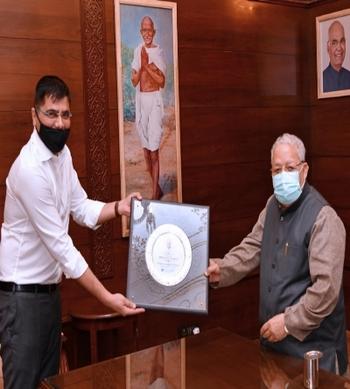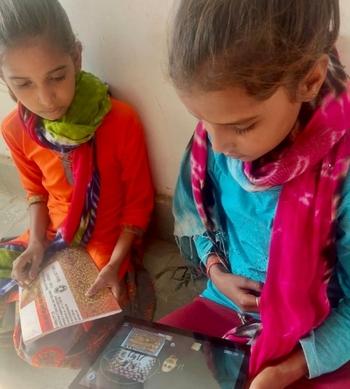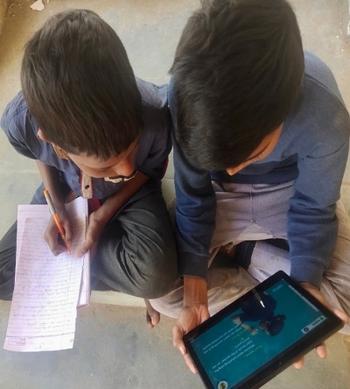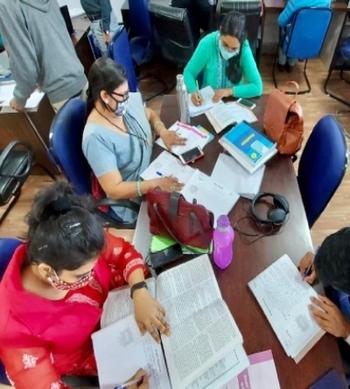CBSE Class 6 Science Syllabus for 2023-24
The kids must understand the CBSE Class 6 Science Syllabus. It offers a summary of the course material as well as information on each chapter's and topic's main ideas, resources, and activities. Students can learn what is required of them in the Science subject by reading the CBSE Syllabus for Class 6. The Science Syllabus is exquisitely created in a way that teaches the fundamental ideas of Science and highlights their significance in our daily lives. The syllabus covers subjects including motion and distance measurement, food, electricity and circuits, substance separation, and more. The official CBSE Syllabus for Class 6 Science is available here.
Skip to
CBSE Class 6 Science Syllabus for 2023-24
| Unit | Unit Names | Sections |
| 1 | Food | Sources of food Components of food Cleaning food |
| 2 | Materials | Materials of daily use Different kinds of materials How things change/ react with one another |
| 3 | The World of the Living | Things around us The habitat of the living Plants – form and function Animals – form and function |
| 4 | Moving Things, People and Ideas | Moving |
| 5 | How Things Work | Electric current and circuits Magnets |
| 6 | Natural Phenomena | Rain, thunder and lightning Light |
| 7 | Natural Resources | Importance of water Importance of air Waste |
CBSE Syllabus for Class 6 Science Chapter Names
The chapter for the CBSE Class 6 Science subject is shown in the table below. There are a total of 16 chapters in science, as CBSE Class 6 students may observe.
| Chapter No. | Chapter |
| Chapter 1 | Food Where Does It Come From |
| Chapter 2 | Components of Food |
| Chapter 3 | Fibre to Fabric |
| Chapter 4 | Sorting Materials Into Groups |
| Chapter 5 | Separation of Substances |
| Chapter 6 | Changes Around Us |
| Chapter 7 | Getting to Know Plants |
| Chapter 8 | Body Movements |
| Chapter 9 | The Living Organisms and Their Surroundings |
| Chapter 10 | Motion and Measurement of Distances |
| Chapter 11 | Light Shadows and Reflection |
| Chapter 12 | Electricity and Circuits |
| Chapter 13 | Fun with Magnets |
| Chapter 14 | Water |
| Chapter 15 | Air Around Us |
| Chapter 16 | Garbage In Garbage Out |
In the CBSE Class 6 Science Lab Manual, students can also discover a list of exercises, experiments, and science projects. Students will better understand the topic's practical application by carrying out these experiments. Discovering new things is the goal of science. Students will learn more about it as they engage in more activities. Executing the experiments can result in learning by doing.
Conclusion
The Class 6 Science Syllabus for the Central Board of Secondary Education (CBSE) is intended to lay a foundation in scientific knowledge and create a fascination with the natural world. The curriculum strives to foster in pupils an understanding of science, critical analysis, and critical thinking. I can give a general summary of the subjects normally covered in CBSE Class 6 Science, even if the specifics of the syllabus may change over time.
FAQ's
Q.1 How can I prepare effectively for CBSE Class 6 Science exams?
A.1. Start by understanding the syllabus and exam pattern. Create a study schedule and allocate time for each topic. Read the textbook thoroughly and make notes. Practice solving sample papers and previous years' question papers. Make use of interactive learning resources, such as videos and online quizzes. Seek clarification from teachers or classmates if you have any doubts.
Q.2 Are practical experiments part of the CBSE Class 6 Science curriculum?
A.2 Yes, practical experiments are an integral part of the CBSE Class 6 Science curriculum. They help students develop practical skills, scientific observation, and reasoning abilities. The syllabus includes specific practical activities and assessments, so it's important to participate in the practical sessions conducted in school actively.
Q.3. How can I improve my understanding of scientific concepts?
A.3. Pay attention during classroom lectures and discussions. Take notes and revise them regularly. Engage in active learning by conducting experiments, observing phenomena, and asking questions. Use visual aids, diagrams, and illustrations to better understand complex concepts. Discuss science topics with classmates or study groups. Refer to additional reference books or online resources for further explanations.
Q.4. How can I make my science learning more engaging and interesting?
A.4. Conduct hands-on experiments or demonstrations at home, if possible. Watch educational videos or documentaries related to science topics. Participate in science fairs, quizzes, or competitions. Visit science museums, planetariums, or nature parks to explore scientific exhibits. Read science-related articles, books, or magazines to expand your knowledge.
Download CBSE Class 6th Science Syllabus PDF

MissionGyan Team
We aim to eradicate the education gap and serve equal and free education to all with the help of skilled and expert volunteers and teachers.





